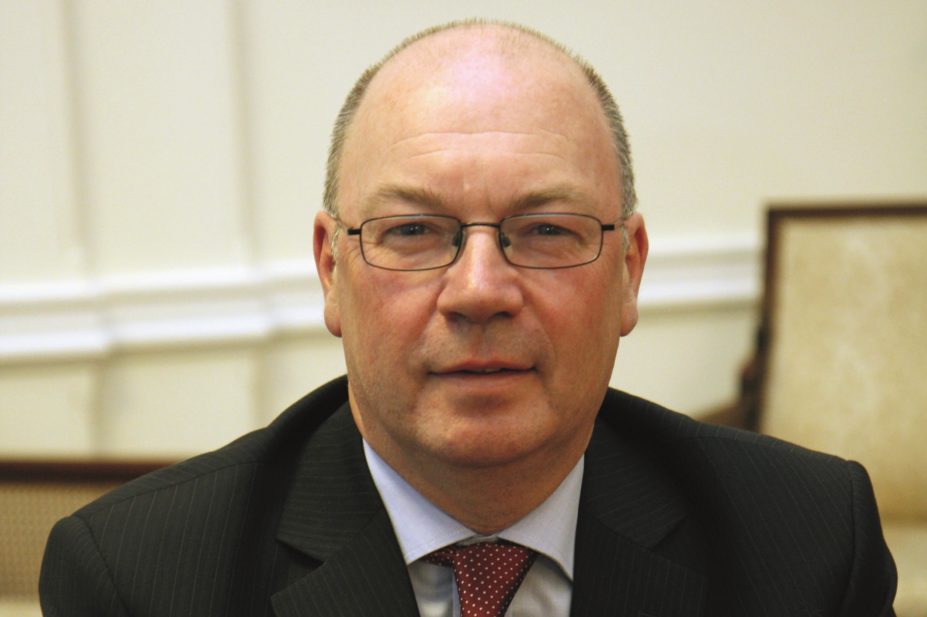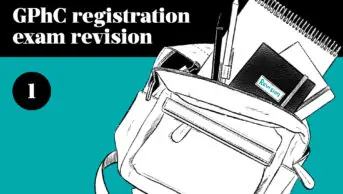
Courtesy of Foreign and Commonwealth Office
The government needs to know who is speaking on behalf of the pharmacy sector, former health minister Alistair Burt told delegates at the Sigma conference in Rio de Janeiro, Brazil, in light of his experience of dealing with negotiations over the pharmacy cuts in 2016.
“Pharmacy has got to be very clear about who is speaking for it,” he told the conference in a pre-recorded video message on 13 February 2016.
As health minister, Burt said he was aware of “different voices” in the pharmacy profession. “It doesn’t help the [negotiating] process if ministers become aware of mixed views and it rather weakens the base for negotiations,” he said.
The lack of clarity about who is leading on negotiations needs to be sorted out, said Burt, “or confirm that the [Pharmaceutical Services Negotiating Committee] is it”.
There are many bodies that represent pharmacy interests in England, including the PSNC, Pharmacy Voice, the National Pharmacy Association (NPA), the Royal Pharmaceutical Society and others.
“Ministers need to know clearly who is speaking and who is in charge,” Burt emphasised.
Also addressing the conference, Ian Strachan, chair of the NPA, which represents independent pharmacies, explained why the NPA decided to leave Pharmacy Voice, an association of trade bodies including those representing multiple and medium-sized pharmacy chains.
Strachan told the delegates: “Pursuing unity and a single voice [in pharmacy] is fine but not if the price of that unity compromises our ability to defend the interests of independents, particularly when the threat of the government’s measures will affect independents the most.”
The NPA’s decision to leave Pharmacy Voice means the umbrella organisation will have to disband at the end of 2017.
Strachan said that shared values were difficult to achieve within Pharmacy Voice. “I would rather lobby from outside the establishment and influence politicians and civil servants without the handicap of that illusion of unity sometimes.”
He added that pharmacy policy development should be part of the negotiating process. “As far as the government’s reforms are concerned, I would rather have no policy than bad policy.”
Strachan also criticised the government’s plan to move pharmacy away from the traditional premises model to a medicines-supply solution that deploys digital technology at the expense of face-to-face contact.
“The government’s approach to reduce expenditure on pharmacy by commoditising supply is misguided, un-evidenced, fails to ask the right questions and shows a basic lack of understanding.”
The conference also heard speakers talk about the upcoming judicial review launched by the NPA and the PSNC about the pharmacy cuts which took effect in December 2016.
Burt said: “I have no objection to the profession trying to seek to clarify the law behind the government’s position. It’s essential the decision is made honestly and correctly within the law — any doubt needs to be resolved.”
David Reissner, senior healthcare partner at the law firm Charles Russell Speechlys, told the conference that if either of the legal challenges were successful, it may mean the government has to put the pharmacy cuts on hold and provide remuneration for pharmacies, because funding for pharmacies was reduced as part of the cuts.
- Michael Dowdall attended the Sigma conference courtesy of Sigma Pharmaceuticals.
You may also be interested in

Pharmacy regulator considers giving up legal authority to conduct covert investigations of pharmacists

More than 40% of people with ADHD waiting at least two years to access mental health service, study finds
